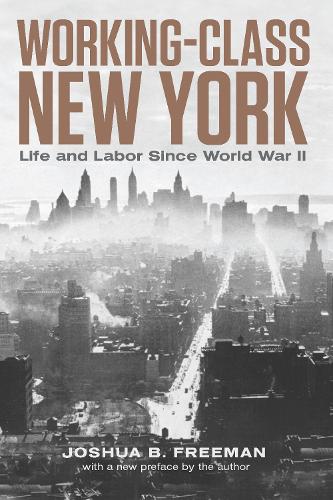
Working-Class New York: Life and Labor Since World War II
(Paperback)
Publishing Details
Working-Class New York: Life and Labor Since World War II
By (Author) Joshua B. Freeman
The New Press
The New Press
29th July 2026
United Kingdom
Classifications
General
Non Fiction
Historical geography
History of the Americas
Social classes
Labour / income economics
Ethnic groups and multicultural studies
Physical Properties
Paperback
448
Width 152mm, Height 228mm, Spine 27mm
Description
A "lucid, detailed, and imaginative analysis" (The Nation) of the model city that working-class New Yorkers created after World War II-and its tragic demise
More than any other city in America, New York in the years after the Second World War carved out an idealistic and equitable path to the future. Largely through the efforts of its working class and the dynamic labor movement it built, New York City became the envied model of liberal America and the scourge of conservatives everywhere: cheap and easy-to-use mass transit, work in small businesses and factories that had good wages and benefits, affordable public housing, and healthcare for all.
Working-Class New York is an "engrossing" (Dissent) account of the birth of that ideal and the way it came crashing down. In what Publishers Weekly calls "absorbing and beautifully detailed history," historian Joshua Freeman shows how the anticommunist purges of the 1950s decimated the ranks of the labor movement and demoralized its idealists, and how the fiscal crisis of the mid-1970s dealt another crushing blow to liberal ideals as the city's wealthy elite made a frenzied grab for power.
A grand work of cultural and social history, Working-Class New York is a moving chronicle of a dream that died but may yet rise again.
Author Bio
Joshua B. Freeman is a distinguished professor of history at Queens College and the Graduate Center of the City University of New York. He is the author of American Empire 19452000and In Transit, a co-author of Who Built America, and a co-editor of Audacious Democracy. He lives in New York City.
